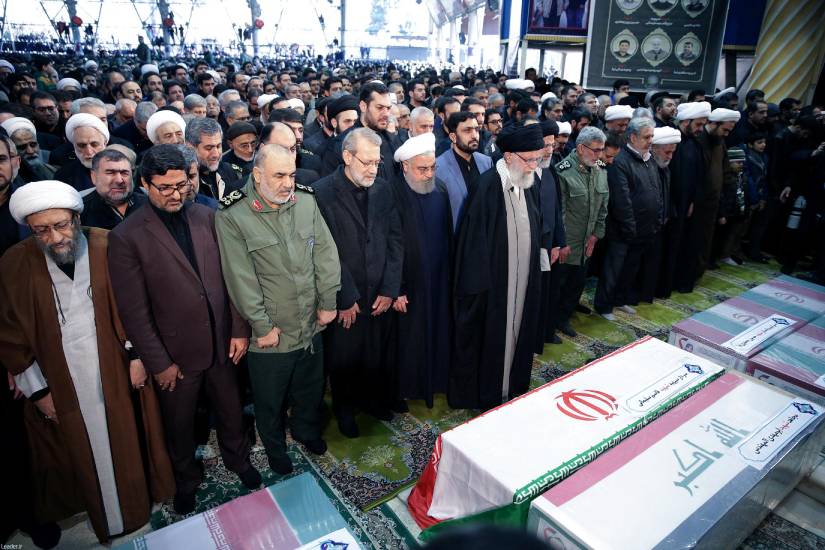×
The Standard e-Paper
Home To Bold Columnists

Iran's Supreme Leader Ayatollah Ali Khamenei led vast crowds in prayers in Tehran on Monday at the funeral of slain military commander Qassem Soleimani, publicly weeping for the general killed by a US drone strike.
Iranians, who state media said numbered in the millions, poured on to the streets of the Iranian capital to bid farewell to the commander of the Quds Force, the unit in charge of foreign operations of Iran's Revolutionary Guards.